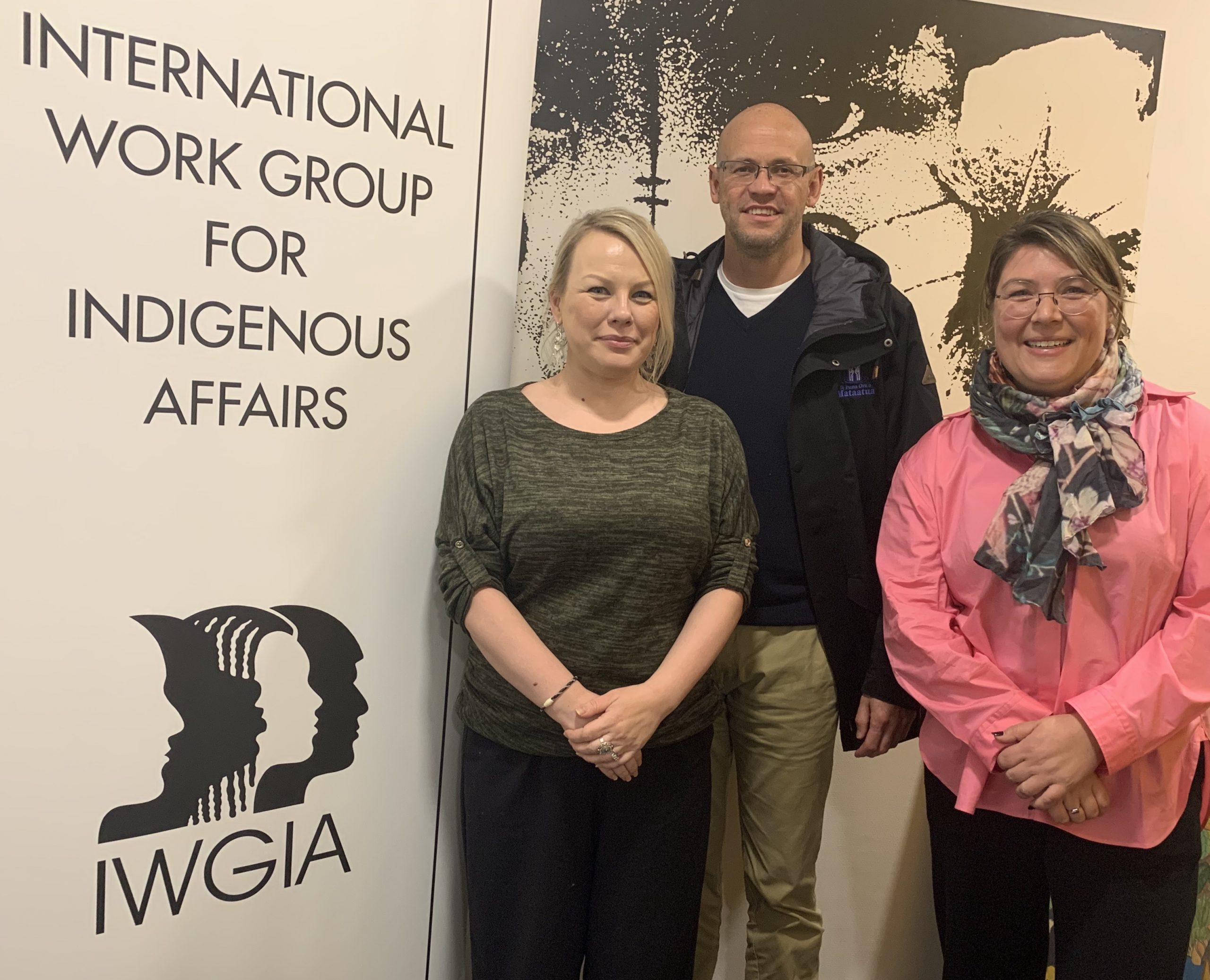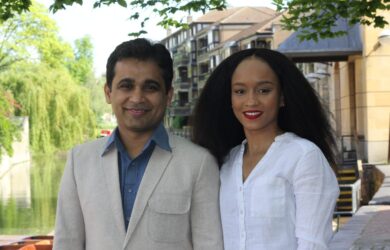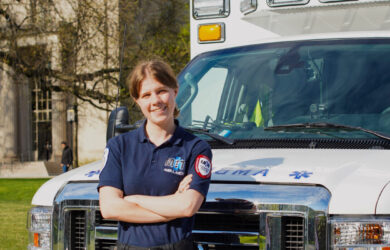
Chris Tooley on how he has used his experience of academia, politics and community work to help his community
I thought I had to be an academic to understand the world and change it. Then I thought I had to be in Parliament to affect change. Now I’m working out in the community and able to see the realities of how change needs to occur in real-time.
Chris Tooley
Self-determination lies at the centre of Māori culture. “It’s a way of life,” says Chris Tooley. That idea is also at the heart of his PhD studies at Cambridge and his subsequent work in Parliament and in the community.
Chris grew up with a strong sense of being part of the Māori community. He has ancestral heritage to Ngāti Kahungunu, a Māori tribe located on the East Coast of New Zealand. His uncle was also knighted for his work in the Māori community. He didn’t feel forced to follow in his uncle’s footsteps, but his family’s experiences have been a powerful spur to action. He says: “No-one told me what to do, just being around them and watching what they were doing created a sense of purpose.”
Chris originally trained as a physical education teacher after representing New Zealand in track and field. During his master’s degree at the University of Auckland he became interested in wider social and political issues and his research for which he won the University’s Māori honours scholarship, focused on the struggle of indigenous people.
At university he had become involved in United Nations (UN) work and represented New Zealand at the UN Youth Forum and went to the UN university in Tokyo. He also co-chaired the international youth parliament.
Cambridge
That experience inspired him to apply to Cambridge to do a PhD on self-determination movements from a more global perspective. He applied for the Gates Cambridge Scholarship, but, given it was only in its second year, there were no past New Zealand scholars he found it hard to get background information on it from so far way. While he was in Amsterdam at a UN sustainable development summit when he got a call from Gates Cambridge Provost Gordon Johnson to say he had been shortlisted for the programme and within 48 hours was sitting in front of the interview board.
Once at Cambridge Chris [2002] found himself in the rare books archive months on end, trying to track down when the term self-determination was first written. He discovered that it was first written in 1662 by a priest who lived in Cambridge. “When I found that reference, I knew I was in the right place,” he says. Much of his PhD centred on mapping the political philosophy behind self-determination, how it was used across the UN system and how different political groups try to work with it in different ways.
“Self-determination is a western framework,” says Chris. “To get recognised by the UN and international law you have to work within that framework, but different cultures have their own definition and use other words with other meanings that give expression to their sense of autonomy. There remains a conflicting ambiguity when non-western cultural groups move through the international system. My PhD theorised a framework which allows them to seek recognition while maintaining their cultural authenticity.”
For his PhD Chris applied his theory to Palestine where he investigated different cultural conventions in relations to self-determination across the Middle East region and the constraints on the Palestinian struggle for recognition.
Politics
When he finished his doctorate, Chris returned to New Zealand and started a fellowship at Auckland University. After members of the new Māori party were elected to Government, he was invited to a local electorate meeting. At the meeting he was appointed the party’s campaign manager, getting involved in day-to-day political life. “I didn’t know what the meeting was about. It was all pretty relaxed and casual, community leaders discussing policy. Then bang, new agenda item tabled: nominations for campaign manager. Everyone looked at me, some were cracking up. I said I had no time, motion passed. Welcome to Politics 101”.
In 2009, Chris was appointed Chief Advisor to Sir Pita R Sharples, Minister of Māori Affairs, Associate Minister of Education, Associate Minister of Corrections, working in the Parliament in Wellington for six years. He says the experience allowed him to put the theoretical framework of his PhD to practical use. “The New Zealand government had been opposing the UN Declaration on the Rights of Indigenous People for some time. Applying an ethics of self-determination that deconstructs binaries, it helped to shift the government’s position. My PhD helped me to understand the different moving parts and how to navigate through them,” says Chris.
Afterwards, Chris was elected to the International Work Group on Indigenous Affairs, an organisation that ensures governments are implementing the rights of indigenous people.
Community work
In 2016, Chris was appointed Chief Executive Officer of Te Puna Ora o Mataatua, a regional health and social provider across the Bay of Plenty. He says that having gained his academic spurs in Cambridge and his policy spurs in Parliament he is now applying what he has learnt in the community. “I thought I had to be an academic to understand the world and change it,” he says. “Then I thought I had to be in Parliament to affect change. Now I’m working out in the community and able to see the realities of how change needs to occur in real-time. Everything plays its part and contributes to the overall struggle in different ways. I am fortunate to have been able to have experienced all three sectors and to understand what each brings to the whole bigger picture of how transformation comes about.”
This work is based on implementing a fully integrated model that allows social, medical, health, employment provisions into a seamless service delivery approach. This is easier said than done, given it involves pulling together a concoction of contracts from different agencies that are siloed and at times contradictory. Chris’ organisation was also responsible for rolling out the COVID-19 response in his region of New Zealand. “We had to take our integrated model and go mobile in a clinically suppressed environment within a matter of hours – it was an extraordinary time to be working in the health sector”.
In November, Chris’ work was recognised when he was given a prestigious BLAKE Award. The Award recognises and celebrates people “whose leadership has delivered high impact results and contributed to a more sustainable future for New Zealand”.
Gates Cambridge
Chris still keeps in touch with Gates Cambridge and helps scholars who want to know how to apply or how to get around New Zealand when they travel here. He says Gates Cambridge brought the four corners of the world and opened up a new world of ideas and perspectives. “You could talk about anything with people from any walk of life,” he says. “It seemed an intellectual bombardment of the whole world of knowledge and lived experience.” He adds: “Often, it felt the same as attending a UN summit, with a good dose of college and rowing banter. Everyone was on the same level.”
The experience means he now has a network of friends and contacts in almost every country in the world. “The best thing about the Gates Cambridge network is that there is always someone who can direct you to the person you need to contact about any given issue no matter where they are in the world because Gates Cambridge colleagues are at the top of their game and on the frontline. They don’t just put you in touch with a contact; they connect you to ‘the’ contact. That’s the really cool thing about our alumni.”












